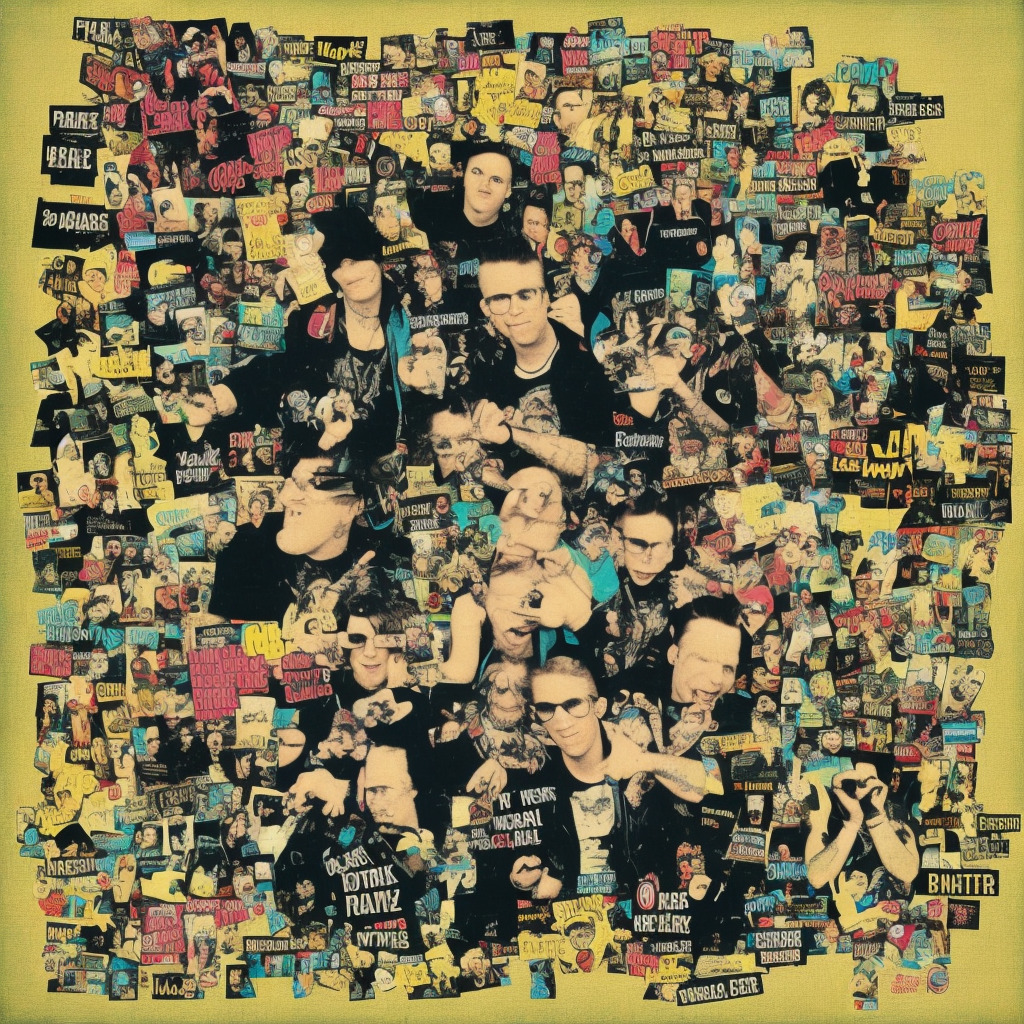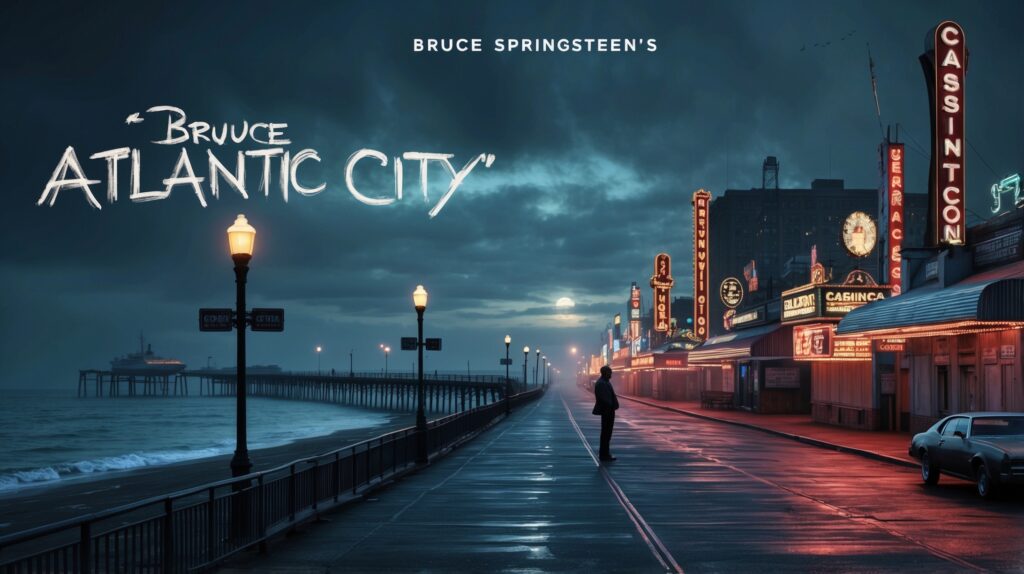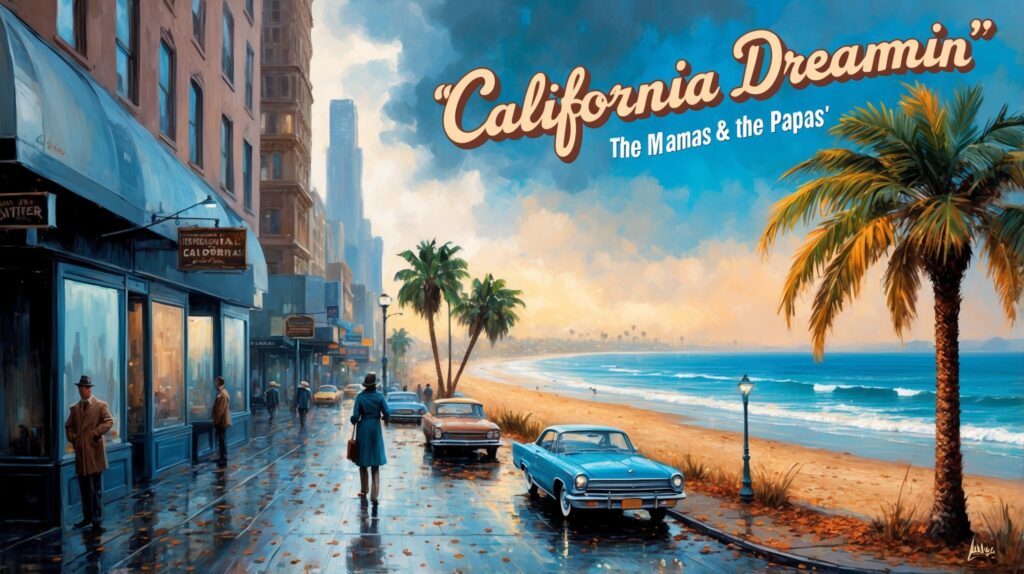🥄Did you know? “Spoonman” by #Soundgarden was inspired by street artist Artis the Spoonman! Jam with this iconic ’90s grunge masterpiece! 🤘🎶 #FunFact #90sRock #SpoonmanTrivia Read about it: tinyurl.com/3hns3v9u
The Rhythm of Silverware: An Ode to the Unconventional
Spoonman: A daring fusion of grunge and unconventional spoon rhythms that solidified Soundgarden’s innovative legacy in the music world.
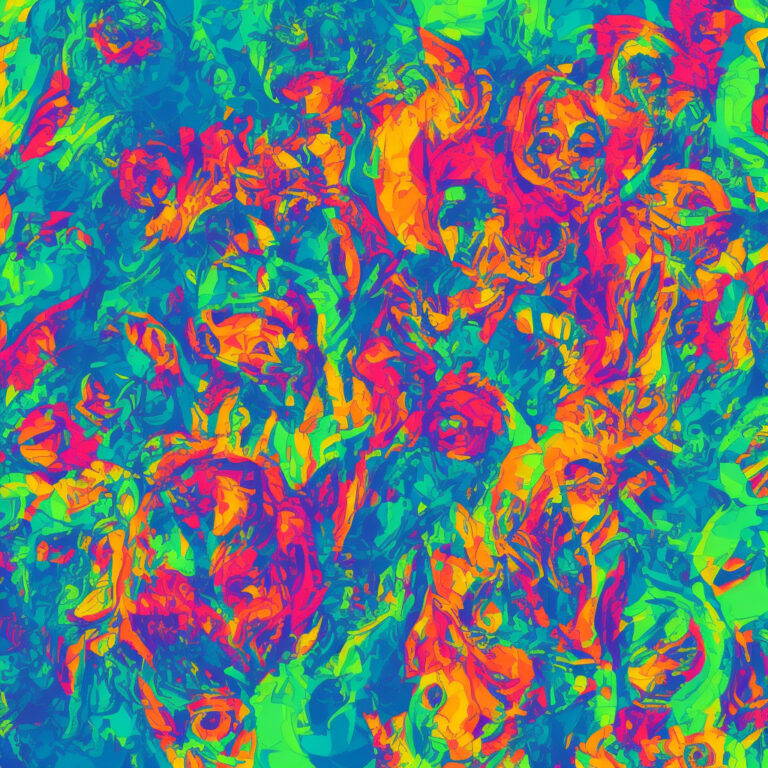
When discussing the iconic Seattle-based rock band Soundgarden, it is impossible not to mention their Grammy Award-winning song “Spoonman.” Originally released as a single in 1994, the track later became a standout hit from their acclaimed fourth studio album, ‘Superunknown.’ With Chris Cornell on vocals and guitar, Kim Thayil on lead guitar, Ben Shepherd on bass, and Matt Cameron on drums, Soundgarden’s lineup for this album was a force to be reckoned with.
“Spoonman” is notable for its unique and unconventional sound, brought to life by Artis the Spoonman, a street performer from Seattle who played the spoons in time with the band’s heavy, grunge-inspired riffage. By incorporating this uncommon element, Soundgarden not only highlighted their ability to push boundaries and experiment with different textures, but also brought attention to the world of street performers and the untapped talents that can be found in seemingly unlikely places.
As for the criticism one might have, it could very well revolve around the rather unorthodox use of spoons as a musical instrument in a rock song. Some listeners might dismiss it as gimmicky or distracting from the rest of the track. However, there’s no denying that this distinctive choice propelled the song into a category of its own and contributed to Soundgarden’s reputation as a daring and innovative band within the grunge movement.
The lyrics of “Spoonman,” penned by Cornell, tell the story of a misunderstood individual who finds solace and purpose in the art of playing spoons. The song’s message resonated with fans and critics alike, earning “Spoonman” two Grammy Awards – Best Metal Performance and Best Hard Rock Performance – in 1995.
In conclusion, “Spoonman” stands out not only as a pivotal track for Soundgarden but also as a testament to the creative spirit of the grunge era. It showcases the band’s willingness to push boundaries and transcend genre expectations, proving once again that sometimes the most memorable music comes from the most unexpected places.
Charting the Course of a Grunge Classic
“Spoonman”: Soundgarden’s grunge classic conquers charts & scoops a Grammy, proving its timeless impact on rock music history.
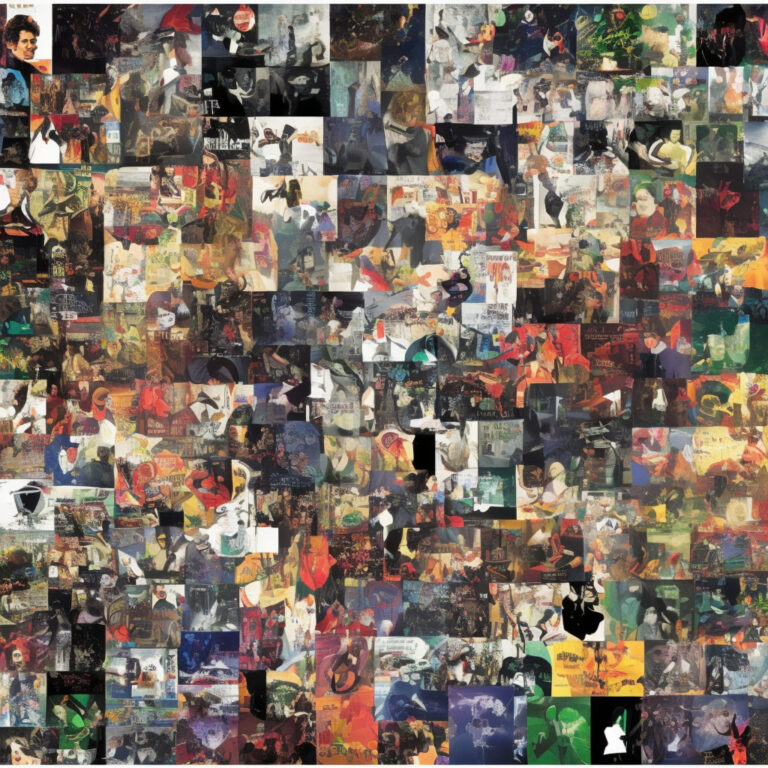
“Spoonman” was released on February 15, 1994, as the first single off Soundgarden’s highly successful album, “Superunknown.” Upon its release, the song rapidly climbed the charts and solidified its position as a grunge classic. The track initially entered the US Billboard Hot 100 at No. 91, a testament to the band’s growing popularity at the time. The song’s highest position in this chart was No. 58, showcasing its impressive staying power.
In addition to its success on the Billboard Hot 100, “Spoonman” also made waves on other US charts. The song reached No. 3 on the Billboard Mainstream Rock Tracks chart and No. 9 on the Modern Rock Tracks chart. This dual success on both rock charts further exemplified the track’s widespread appeal to rock music enthusiasts.
“Spoonman” also crossed international borders and performed well in other countries. In the United Kingdom, the song peaked at No. 23 on the UK Singles Chart. It also reached No. 21 in Canada’s RPM Top Singles chart, securing a spot in the Top 25 of two major international charts.
The song’s chart performance was not the only testament to its success. “Spoonman” went on to win a Grammy Award for Best Metal Performance in 1995, further cementing its status as a grunge and metal staple.
To this day, “Spoonman” remains a beloved track in Soundgarden’s discography, and its chart success serves as a testament to the band’s impact on the music world. As one delves into the numbers and accolades, it becomes clear that “Spoonman” is not just a standout single, but a key piece of rock music history.
Dissecting the Depth of “Spoonman”
As we dive into the lyrics of Soundgarden’s “Spoonman,” it’s essential to explore the meaning behind the words and understand how they resonate with the spirit of the time and events during which the song was written. “Spoonman” was released in 1994 as part of their fourth studio album, Superunknown.
Come on x5
All my friends are Indians
All my friends are brown and red, Spoonman
And beat the rhythm with their bones
Oh, Spoonman
Come on, come on, come on, come on, come on x3
Come on, come on, come on, come on
All my friends are skeletons
And beat the rhythm with their bones
Oh, (come on, come on, come on, come on, come on) Spoonman
(Beat it) (come on, come on, come on, come on, come on)
Come on with your hands
Come on, come on, come on, come on, come on with your hands
Come on, come on, come on, come on, come on with your hands
Come on with your hands
Come on, come on, come on, come on x3
Come on, come on, come on, come on
All my friends are enemies
(And beat the rhythm) (Come on, come on, come on, come on, come on) with their bones (come on, come on, come on, come on)
Oh, (come on, come on, come on, come on, come on) Spoonman, Spoonman
At its core, “Spoonman” is about the power of music and its ability to inspire a sense of camaraderie among people from various backgrounds. The title “Spoonman” refers to Artis the Spoonman, a street musician from Seattle who played the spoons as a musical instrument. Soundgarden’s frontman, Chris Cornell, was inspired by Artis and his unique talent, which led to the creation of the song.
The lyrics “All my friends are Indians / All my friends are brown and red” can be interpreted as a nod to the cultural diversity that existed during the ’90s in the United States, particularly in Seattle’s music scene. The grunge movement, of which Soundgarden was a vital part, was known for bringing people together, regardless of their race or background.
As the song progresses, we see references to “skeletons” and “enemies,” likely symbolizing struggles, hardships, and obstacles that people face in life. Yet, through music and the unifying power of rhythmic expression, these challenges can be confronted, and a sense of community can be fostered.
The repeated phrase “come on with your hands” encourages participation, showcasing the power music has to make people come together and join in the experience. It serves as a reminder that even in the hardest of times or amidst adversities, there is always room for unity and connection through the power of music.
In conclusion, “Spoonman” by Soundgarden encapsulates the spirit of the time, highlighting the importance of unity, diversity, and the power of music. The lyrics, combined with the band’s distinct sound, create a moving and influential piece that remains a significant part of the ’90s grunge era.
A Visual Feast: The “Spoonman” Music Video
Spoonman Unleashed: Iconic Soundgarden video fuses street art and rock, immortalizing Artis the Spoonman’s rhythmic talent in a visual masterpiece.
The music video for “Spoonman” has become an iconic representation of Soundgarden and their unique sound. Directed by Jeffrey Plansker, the video showcases the band’s intense performance, intertwined with shots of the enigmatic street performer, Artis the Spoonman, who inspired the song.
Artis the Spoonman, a real-life street performer from Seattle, plays a central role in the video. His talent of playing spoons as a makeshift percussion instrument caught the attention of Soundgarden’s lead singer, Chris Cornell, eventually leading to the creation of this iconic track. In the video, we see Artis performing his spoon-playing skills in perfect harmony with the band’s powerful rhythm.
Jeffrey Plansker, a well-known music video and commercial director, managed to capture the raw energy of Soundgarden’s live performances in this video. With a focus on close-ups and quick cuts, the video creates an intimate yet dynamic visual experience, a testament to Plansker’s excellent direction. The production details and budget for the video remain undisclosed, but the high-quality visuals and engaging storyline make it clear that no expense was spared.
The artistic approach of the video perfectly complements the song’s captivating sound. Shot mainly in black and white, it exudes a grunge aesthetic fitting for Soundgarden’s genre. With the integration of Artis the Spoonman’s performance, the video highlights the unique fusion of street art and rock music, reminding viewers of the diverse talent that can be found in their own city streets.
In addition to the official music video, “Spoonman” has inspired numerous fan videos and YouTube tributes. These reinterpretations range from creative animations to impressive drum covers, further displaying the impact of Soundgarden’s music on their fans. These fan-made creations serve as a testament to the lasting influence of “Spoonman” and the band’s enduring legacy.
Overall, the “Spoonman” music video stands as a timeless representation of Soundgarden’s innovative sound and the captivating talent of Artis the Spoonman. The video’s artistry and direction continue to inspire fans and fellow musicians alike, solidifying its place in rock music history.
The Mastermind Behind “Spoonman”: Chris Cornell
Diving deeper into the creative force behind Soundgarden’s iconic hit “Spoonman,” we find none other than the late Chris Cornell. As the band’s frontman, Cornell was a prolific songwriter, penning the majority of Soundgarden’s material. His soulful voice, powerful lyrics, and undeniable talent in crafting melodies earned him a well-deserved spot among the pantheon of rock gods. Besides “Spoonman,” Cornell was also responsible for composing other notable songs in Soundgarden’s discography, such as “Black Hole Sun,” “Fell on Black Days,” and “Outshined.” Outside of Soundgarden, Cornell also had an impressive solo career and was a member of other legendary bands like Audioslave and Temple of the Dog. In each of these projects, he showcased his versatility and ability to create memorable songs that resonated with fans across generations.
Awards, Accolades and Notable Appearances
“Spoonman” triumphs as a Grammy-winning, enduring rock anthem, leaving its indelible mark across various media platforms and inspiring artists of today and tomorrow.
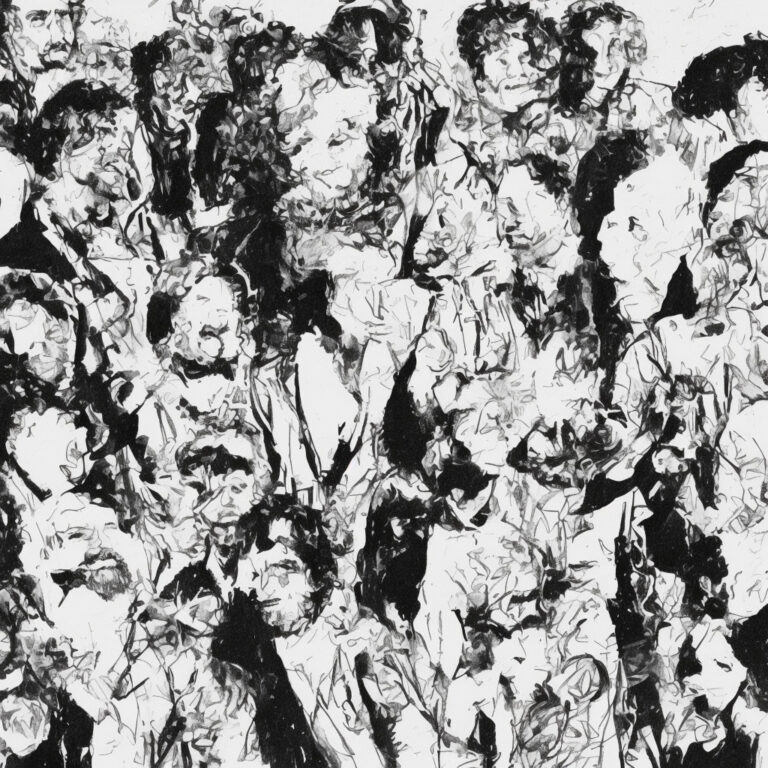
“Spoonman” has undoubtedly made its mark in music history. It was released as a single in 1994 and quickly gained recognition, receiving the Grammy Award for Best Metal Performance in 1995. This accolade further solidified Soundgarden’s position in the world of rock and metal, showcasing the unique sound and talent that the band possessed.
In addition to its success in the world of music, “Spoonman” has made its presence known in various forms of media, contributing to its enduring legacy. The song was featured in the popular video game “Guitar Hero: Warriors of Rock,” allowing gamers to channel their inner rock star and play along to the iconic riffs and rhythms. Moreover, “Spoonman” has also appeared in episodes of the television series “Hindsight” and “Unsolved: The Murders of Tupac and the Notorious B.I.G.”
Despite its widespread fame, “Spoonman” has not become a victim of countless covers, which can sometimes dilute the essence of the original track. However, some noteworthy artists and bands have attempted to pay tribute to Soundgarden’s classic. One such example is the cover by the band “Theory of a Deadman,” who performed a rendition of the song at the Chris Cornell Tribute Concert in 2019. Their interpretation captured the raw energy and emotion of the original while delivering their own unique spin.
In summary, “Spoonman” continues to leave its mark on the music world, garnering awards and featuring in different forms of media. Although there haven’t been many cover versions, the few that exist pay homage to this iconic track, ensuring that its legacy will continue to influence and inspire future generations of musicians and music enthusiasts.
Breaking Down the Musicality
Diving into the musical intricacies of “Spoonman,” one cannot help but appreciate the band’s mastery in blending various elements to create this iconic track. The song is primarily written in the key of D minor, with a distinctive opening riff that alternates between D and F power chords. The riff’s simplicity provides a solid foundation for the rest of the track, which builds upon this base with layers of rhythmic and melodic complexity.
One of the defining features of “Spoonman” is its odd time signature. While the majority of the song is in 7/4 time, it occasionally switches to 4/4, particularly during the chorus. This time signature gives the song a unique, off-kilter feel that sets it apart from other grunge tracks of the era. The tempo of the song is moderately paced, clocking in at around 123 BPM, which adds to its approachability and potential for audience engagement.
The verse sections of “Spoonman” showcase Chris Cornell’s powerful vocal delivery, as he navigates a melody that is both haunting and memorable. The melody is predominantly pentatonic, which lends itself to the gritty, bluesy nature of the band’s sound. The chorus, on the other hand, is more anthemic and features a catchy, sing-along quality that has made “Spoonman” a fan favorite.
The harmonies in “Spoonman” are fairly straightforward, with power chords making up the bulk of the guitar work. However, underneath this simplicity lies a rich tapestry of rhythmic complexity. The drums, played by Matt Cameron, are a standout feature of the track, with dynamic grooves that interweave with the song’s odd time signature and accentuate the changes between sections.
Perhaps the most distinctive element of “Spoonman” is the inclusion of unconventional percussion. The song features a bridge section in which Artis the Spoonman, a street performer, showcases his talent by playing the spoons. This adds a unique texture to the track and further enhances its unconventional character.
Overall, “Spoonman” is a masterclass in combining a range of musical elements to create a truly memorable and engaging piece. Its odd time signature, anthemic chorus, and inventive instrumentation all come together to form a track that is both accessible and technically impressive, securing its place as a standout in Soundgarden’s discography.



